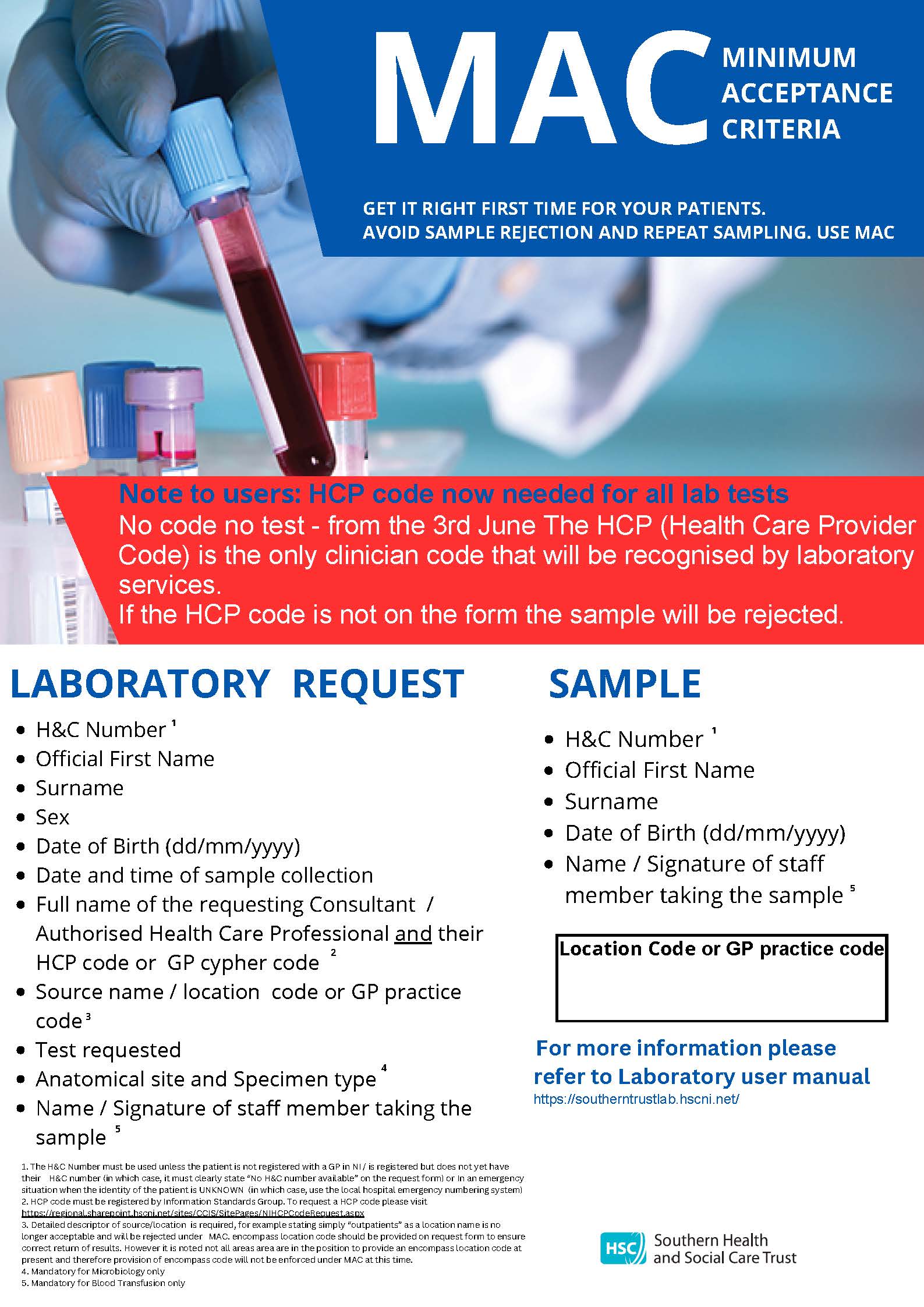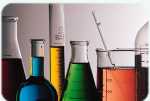 |
||
| Enquiries: 028 37563211 |
||
| General
Information |
Location
The main
laboratory is situated at Craigavon Area Hospital and provides a comprehensive
Haematology, Chemical Pathology, Microbiology and Histo/Cytopathology
service. Additional laboratory facilities are located at Daisy Hill Hospital
site.
Craigavon Area Hospital |
Opening Hours |
Weekend |
Bank Holidays |
|---|---|---|---|
Biochemistry |
24/7 |
24/7 |
24/7 |
Haematology / Blood Transfusion |
24/7 |
24/7 |
24/7 |
Microbiology |
Weekdays 9am - 9pm |
9am - 5pm |
9am - 5 pm |
|
|
||
Cellular Pathology |
08.45 - 17.00 hrs |
n/a |
n/a |
|
|
|
|
Daisy Hill Hospital |
Opening Hours |
Weekend |
Bank Holidays |
Biochemistry |
24/7 |
24/7 |
24/7 |
Haematology / Blood Transfusion |
24/7 |
24/7 |
24/7 |
CAH/DHH
|
Opening Hours |
Weekend |
Bank Holidays |
Mortuary |
09.00 - 17.00 hrs |
09.00 - 18.30 hrs |
09.00 - 18.30 hrs |
The following
tests are available as an emergency: -
Chemical Pathology |
||||||||||||||||||||||||||||||||||||||||||||||||||||||||||||||||||||||||||||||||||||||||||||||||||||
|
||||||||||||||||||||||||||||||||||||||||||||||||||||||||||||||||||||||||||||||||||||||||||||||||||||
Microbiology |
||||||||||||||||
MEDICAL MICROBIOLOGY ADVICE To refer your patient for Medical Microbiology advice Monday to Friday from 09:00 to 17:00 please create an order for an IP Consult to Microbiology on EPIC. For referrals made before 15:00 Monday to Friday, we will endeavour to respond the same day. Inpatient consults made after 15:00 Monday to Friday may be answered the next working day. After 17:00 on weekdays, and during weekends and holidays, you should continue to telephone the Consultant Microbiologist on call via switchboard. At all times URGENT requests for acutely unwell patients MUST still be made by telephone
|
||||||||||||||||
|
||||||||||||||||
Haematology |
|||||||||||||
|
All specimens must be labelled, placed in the special plastic bag attached to the appropriate request form, and sealed. Specimens must not be sent in standard envelopes via the internal post. Samples should be sent via the air tube system in a suitable POD (do not overfill) or by porter. Each batch of samples should be sealed in a pathology transport bag before handing to porter.
Urgent:
All requests required urgently must be clearly labelled as such on the request form.
High Risk: All specimens from suspected or known cases of TB, CJD, hepatitis B & C, AIDS and HIV infection etc must be treated as "high risk" specimens. They must be sent to the laboratory in an appropriate container, which must be labelled with a special biohazard label "Danger of Infection - Take special care". A biohazard label must be attached to both specimen and request form. Blood specimens from "high risk" patients must be taken by an experienced doctor and not by paramedical staff. Gloves must be worn during venepuncture. The use of plastic aprons and eye protection is also advised, if considered appropriate.
 |
All
persons who use the laboratory service are reminded that they must comply
with the legal requirements under the Health and Safety at Work Order
(NI 1978) and COSHH regulations (1988, revised 1995).
Minimum Acceptance Criteria
The information detailed as Minimum Acceptance Criteria is essential in allowing the laboratories to ensure that the right result on the right patient gets back to the appropriate clinical teams in a timely fashion.
Missing or illegible information on a test request raises a patient safety concern, therefore before accepting a clinical specimen laboratory staff must ensure that certain minimum criteria for sample identification are met.
Addressograph labels must not be used on Blood Transfusion specimen containers because of the risk of wrongly labelling a specimen, which can lead to untold clinical and medicolegal problems.

Other information
- Clinical details relevant to investigation.
- For microbiology please state antibiotic used.
- Uncertainty of measurement has been determined for all laboratory tests and is available on request.
- Consultant staff are available for Clinical advice/ interpretation - contact details in phone number section of handbook.
